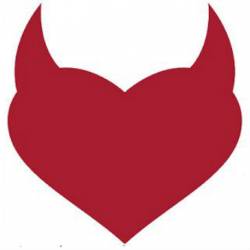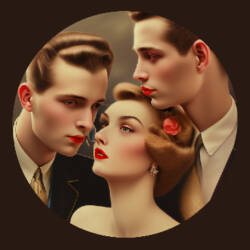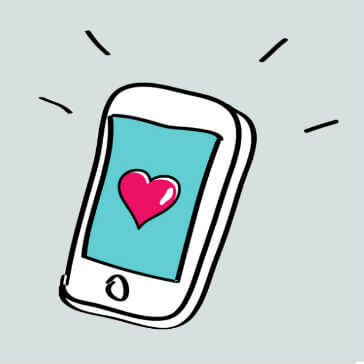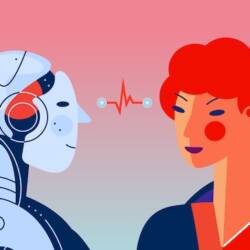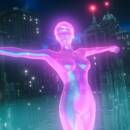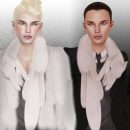Neither Brave nor New: Why the Sex-shaming TV Reboot of Huxley’s Classic Novel Fails
An offensive adaptation made worse by pointlessly demonizing polyamory.

If you listen carefully, you’ll hear a mournful grinding noise: the sound of the highly respected writer and philosopher, Aldous Huxley, spinning in his grave.
A sorrowful rotation propelled by the 2020 mini-series butchering of his classic novel, Brave New World, that ran on Peacock, the new NBCUniversal streaming service.
Worse, this nine-part travesty doesn’t just insult one of the 100 most influential novels of all time.
It also glorifies dysfunctional relationships while simultaneously demeaning many healthy sexual activities—with particular venom directed toward non-monogamy.
Liquifying a quintessential dystopic novel
How bad of an interpretation is the 2020 mini-series? So bad that it’s easier to address the extremely few things it retained from the original.
Both are set in the future—2540 AD—in the book, unnamed in the show—focusing primarily on characters residing in New London, a major city in the globe-spanning World State.
Born and bred in hatcheries, eliminating the need for biological reproduction, each citizen has had their intelligence boosted or diminished before decantation to fit them into their society’s strict caste system.
Alphas, the administrators, on the top, with the assistants, the Betas, immediately below them. At the bottom are the Gammas, Deltas, with severely mentally disabled Epsilons at the bottom.
In both versions, the World State strives to keep its citizens placid and superficially happy. To keep them that way, they use social conditioning; Soma, a methodically consumed joy-pill; never questioning their role in society, and wallowing in intentionally shallow sex.
The concept of Pregnancy and natural birth are utterly alien, with words like mother, father, daughter, son, marriage, considered taboo. Not being free and open to sex, as long as it’s among caste boundaries, is deemed to be selfish—and a serious crime.
That’s where the similarities end.
And where the 2020 version takes the story in a disrespectful direction: insulting fans of the original novel and the sexuality of hundreds of thousands of people.
Why, why, why?
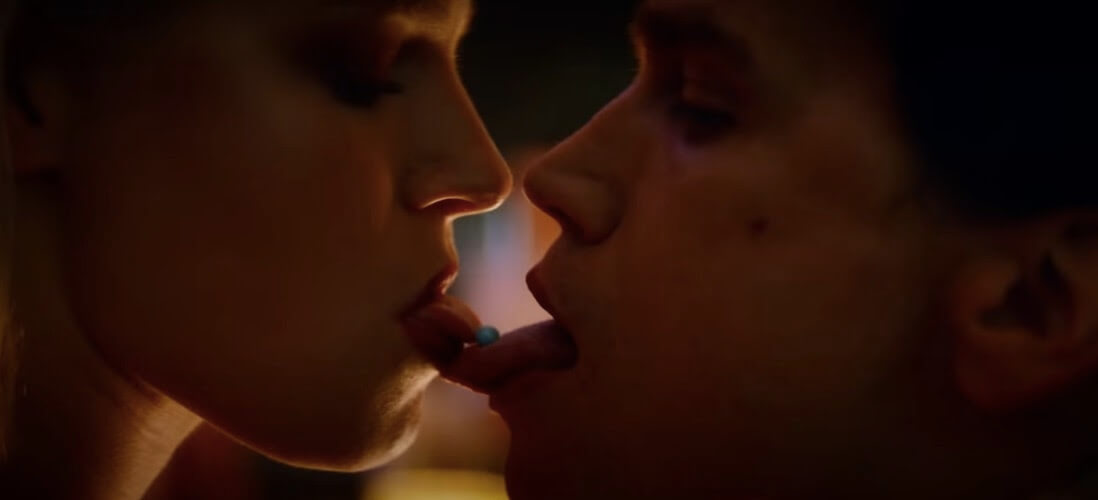
The David Wiener developed version has a lot of head-scratching moments, even after somehow divorcing it from the original to consider it as its own, standalone thing.
Where to start? Probably that after two thorough viewings, I still don’t understand what it was trying to say.
In all fairness, the 1932 novel’s message isn’t clear cut, with the World State characters and John the Savage, who leaves the Indigenous People inspired outlands for New London, depicted as relentlessly rigid about how things should be.
So much so that, spoiler alert, several World State citizens end up banished and John, who based his inflexible attitude on Shakespeare, taking his own life.
The series, though, replaces this with a thoroughly muddled plot. For the most part, the same characters are there, as is John the Savage (Alden Ehrenreich). But here he’s not an isolated, almost child-like character.
Instead, he’s made a confusing mess of pathetic victim, celebrity monster, horribly jealous misogynist, annoyingly self-centered rebel, and generally not very nice person.
Worst still, the production is cartoonish—and not in a pleasant way. Here, the Savage Lands is a brutally impoverished wasteland, where the inhabitants entertain the visiting Alphas and Betas on how the past was disgusting and barbaric.
Shopping becomes Black Friday madness; prisons are hellscapes, and, more than anything, that monogamy will always end in violence.
Insult to injury, the new production glories in every science fiction cliche you can imagine.
An outsider as savior? You got it: John the Savage having the miraculous ability to destroy an entire civilization by belting out a few rousing speeches.
Malevolent computer defeated by humans being humans? They’ve got you covered. And the list goes on and on.
Dipping back into the book, a great deal of its enduring power as a dystopic powerhouse is that the World State is inescapable. No matter what happens, non-conformity simply isn’t conceivable: you are created for, born into, your unshakable place in society.
In all fairness, I did like the 2020 addition of contact lense augmented reality but—moan—only as another tool of oppression.
Worse made worse

Onto my main criticism, aside from how it mocks the novel. The Savage Land amusement park show touched on it, but that’s the most subtle reveal of how the mini-series views sex and relationships.
It’s much more apparent right at the start, with the opening info-dump.
Welcome to New London
We have three rules.
No privacy.
No family.
No monogamy.
Everyone is very happy.
Reading that again makes my blood pressure spike. In the novel, monogamy is unheard of, as “everyone belongs to everyone else,” but monogamy and marriage only appear two or three times in it.
The mini-series, however, proudly and routinely bashes polyamory. Even when John and other characters try single-partner relationships, it invariably goes wrong; it’s still shown as better than non-monogamy. Jealousy is celebrated as innately human—as is violence.
Another symptom of this sick society is sex parties. A good of which is after John the Savage attends one, he’s only to be accused by his love-interest, Lenina Crowne (Jessica Brown Findlay) of cheating on her.
Their mutual toxicity ramps up later, when he forces her to recount, in detail, who she’d just been with as he has rough sex with her—only to collapse in shame and guilt afterward. All in all, a perfect encapsulation of the show’s emotionally stunted view that this is typical, normal, and human.
Same-sex attraction fares no better. Never once showing queer sexuality as healthy or sincerely pleasurable, I have no problem labeling the 2020 adaption of Brave New World as homophobic.
Avoid the show, read the book

Since its publication in 1932, Aldous Huxley’s book has received criticism for its outdated views on ethnicities, indigenous culture, and transparent misogyny.
But he’s equally praised for this remarkably accurate depiction of our world today. In Vitro fertilization, pleasure-inducing chemicals, a global telecommunications system, freely available birth control, new forms of adult entertainment, only scratch the surface of his spot-on predictions.
Barely even inspired by Brave New World, the 2020 series doubles down on the book’s bad points and packs itself with far more egregious insults.
They had an excellent opportunity to update a classic but instead churned out something hollow, stupid, and outright bigoted.
I couldn’t help but notice that Grant Morrison, a comic book creator extraordinaire and a personal fave, was one of the writers/producers. I sincerely hope he took his paycheck and ran because if he gave this all he had, I have to reexamine his talents.
When all’s said and done, the 2020 Brave New World’s worst offense is justifying possessiveness, jealousy, and violence as essential to our humanity. And that polyamory, guilt-free casual sex, orgies, same-sex attraction, are all inhuman, unnatural.
Admittedly, this world is supposed to be oppressive, worse as its citizens are conditioned rather than biologically built for their specific castes as they are in the novel.
But suppose the developer’s outdated beliefs manage to spread. In that case, they very well could make our contemporary society more of a nightmare than it already is: a world where innocent people are routinely ostracised, demeaned, imprisoned, or physically and emotionally brutalized for who and how they love.
Dystopia is not a fantasy; it’s something we’ve meticulously walled ourselves info. But our Brave New World’s not inescapable—and a critical first step toward freedom is standing up to shows like this.
Because they aren’t showing human nature, but what we have to move beyond. And by embracing mutual respect, civility, tolerance, empathy, education, creativity, and the joys of consensual sex, we actually might usher in a better world—maybe even a utopia.
Image sources: Peacock










